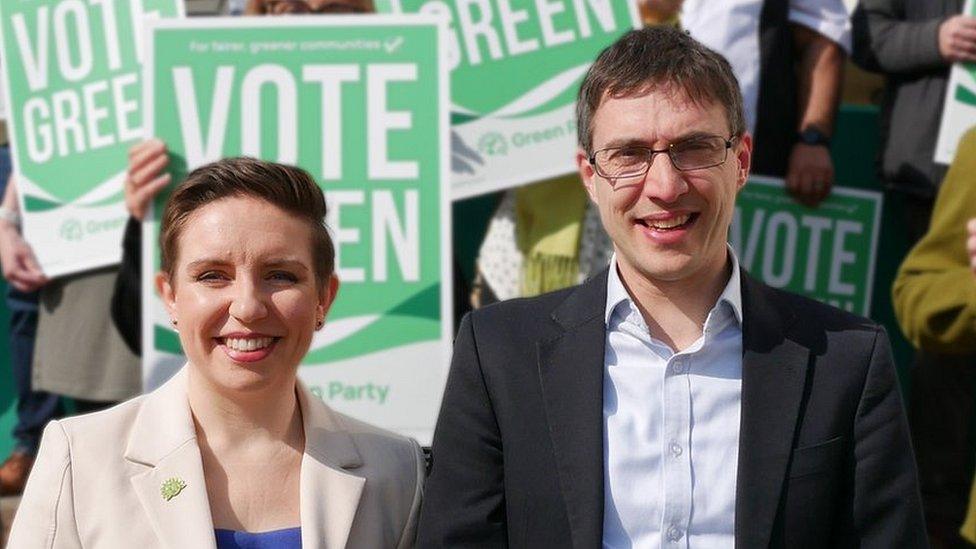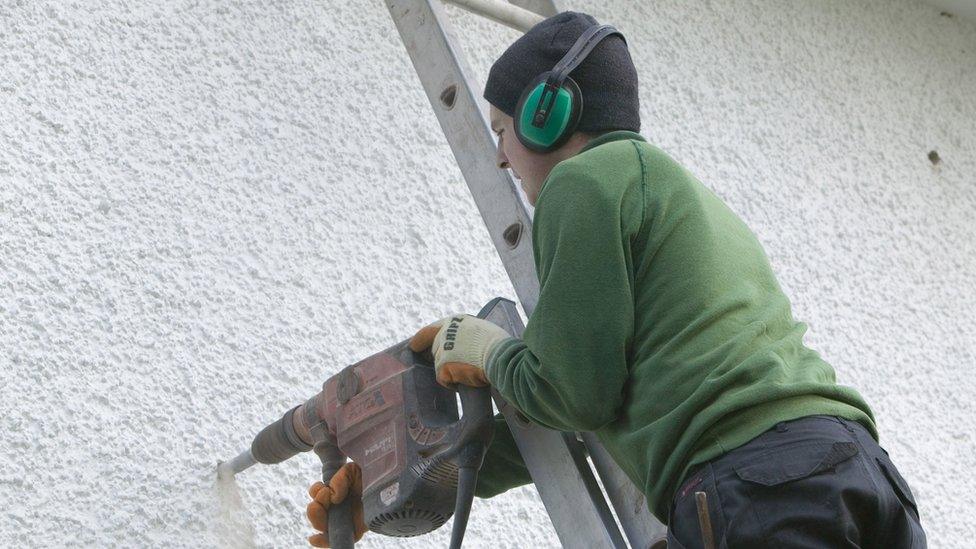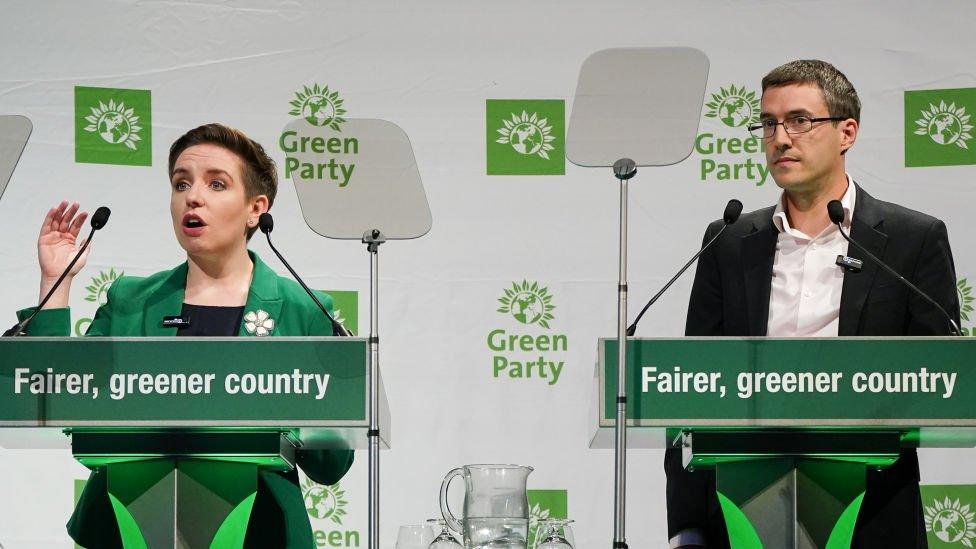Local elections 2023: Greens call for councils to control rents
- Published
- comments

Carla Denyer and Adrian Ramsay have been co-leaders of the party since October 2021
The Green Party is calling for councils to be handed powers to cap rents, as it launches its campaign for next month's local elections.
At an event in Suffolk, co-leader Carla Denyer said controls should be introduced in areas where the market is "overheated".
Too many people, she added, were "trapped in housing unaffordable to rent, and unaffordable to heat".
The party also wants tighter planning rules on the location of new housing.
The local elections, to be held on Thursday 4 May, will see 230 local authorities in England choose some or all of their councillors.
As of May last year, when local elections were last held, the Green Party of England and Wales held roughly 540 councillors.
The party has run councils before, but it is hoping to win outright control of its first major council at the ballot box this time around.
It wants to make progress in Tory-held rural areas, as well as more traditionally Labour urban seats. At its launch event, co-leader Adrian Ramsay said it wanted to take "hundreds" of new councillors.
It used the occasion to showcase its offer on housing, where it wants to boost affordable homes and make new developments more climate-friendly.
It says in the short term, it would replicate the six-month winter rent freeze supported by the Scottish Greens in Scotland. In the longer-term, it says it would give councils powers to control rents in expensive areas.
The party also wants 100,000 council houses built per year to increase the supply of affordable housing, funded by increasing taxes on wealth.
It would also introduce new rules to promote development near public transport and green spaces, and boost energy efficiency by requiring solar panels and heat pumps to be installed on new build homes.


The party also wants property developers to provide more funding towards local services, with Mr Ramsay saying too many villages and towns had seen large developments built without new facilities such as GP surgeries, bus services, cycle lanes and schools.
The Greens say they would make infrastructure requirements in local development plans more strict, arguing national guidance gives too much leeway to housing firms.
Under current rules in England, councils can make housing developers contribute towards local infrastructure through a fixed charge levied on the floorspace of new properties.
Contributions towards new facilities, as well as new affordable housing, can also be made through deals negotiated with individual local authorities during the planning process.
The government is consulting on replacing these schemes with a new tax linked to the price of new properties when they are sold, to be rolled out in stages over several years.
- Published30 September 2022

- Published4 February 2023
